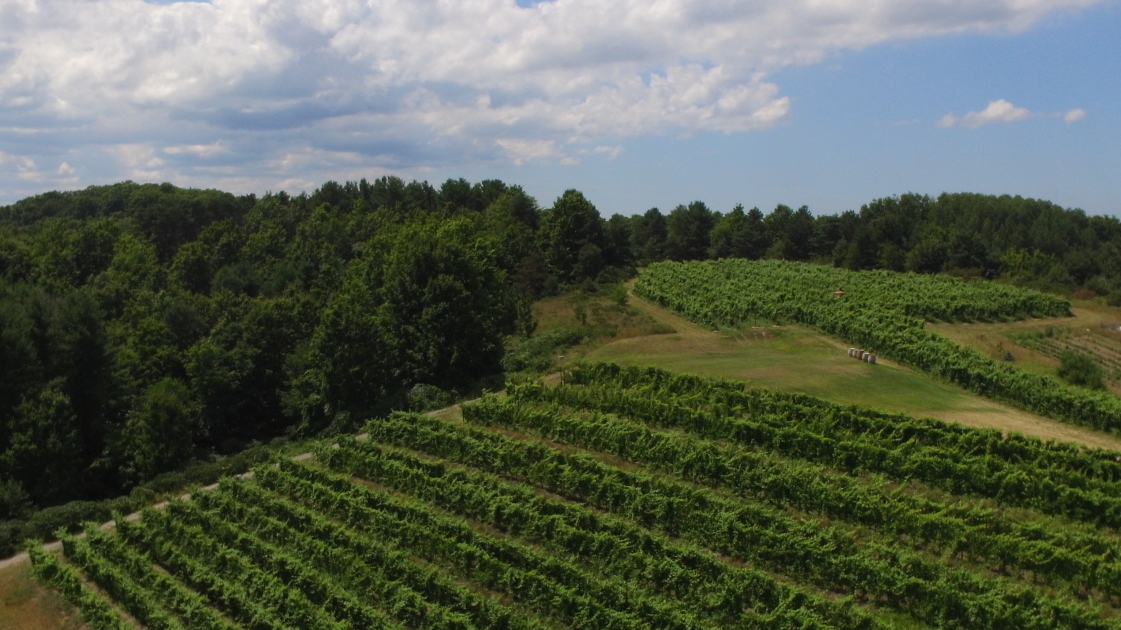[av_layout_row border=” min_height=’0′ color=’main_color’ mobile=’av-flex-cells’ id=” av_uid=’av-nes7tpm’]
[av_cell_one_fifth vertical_align=’top’ padding=’30px’ padding_sync=’true’ background_color=” src=” attachment=” attachment_size=” background_attachment=’scroll’ background_position=’top left’ background_repeat=’no-repeat’ mobile_display=’av-hide-on-mobile’ av_uid=’av-mwhjz62′]
[/av_cell_one_fifth][av_cell_three_fifth vertical_align=’top’ padding=’30px’ background_color=” src=” background_attachment=’scroll’ background_position=’top left’ background_repeat=’no-repeat’ mobile_display=” av_uid=’av-m3kjjxm’]
[av_textblock size=” font_color=” color=” av-medium-font-size=” av-small-font-size=” av-mini-font-size=” av_uid=’av-ltioaga’ custom_class=” admin_preview_bg=”]
Did you know that the first Earth Day took place in 1970? With the help of California congressman Pete McCloskey and a young activist by the name of Denis Hayes, Wisconsin junior senator Gaylord Nelson organized what was supposed to be a teach-in about environmental protections on several college campuses. Hayes recognized the potential for a nationwide movement, so he and his staff began promoting Earth Day events across the country, which led to what was previously the largest single-day protest in US history. On April 22, 1970, 20 million US Americans took to the streets to peacefully protest against the adverse health and environmental impacts caused by 150 years of industrial development.
[/av_textblock]
[/av_cell_three_fifth][av_cell_one_fifth vertical_align=’top’ padding=’30px’ padding_sync=’true’ background_color=” src=” attachment=” attachment_size=” background_attachment=’scroll’ background_position=’top left’ background_repeat=’no-repeat’ mobile_display=’av-hide-on-mobile’ av_uid=’av-liaj90q’]
[/av_cell_one_fifth][/av_layout_row][av_layout_row border=” min_height=’0′ color=’main_color’ mobile=’av-flex-cells’ id=” av_uid=’av-kzyi3sa’]
[av_cell_one_third vertical_align=’top’ padding=’10px,5px,10px,5px’ background_color=” src=” attachment=” attachment_size=” background_attachment=’scroll’ background_position=’top left’ background_repeat=’no-repeat’ mobile_display=’av-hide-on-mobile’ av_uid=’av-kkjjytm’]
[/av_cell_one_third][av_cell_one_third vertical_align=’top’ padding=’5px’ padding_sync=’true’ background_color=” src=” attachment=” attachment_size=” background_attachment=’scroll’ background_position=’top left’ background_repeat=’no-repeat’ mobile_display=” av_uid=’av-jvbjs4q’]
[av_image src=’https://old.blackstarfarms.com/wp-content/uploads/2021/04/earth-day-1970.jpg’ attachment=’21016′ attachment_size=’full’ align=’center’ styling=” hover=” link=” target=” caption=” font_size=” appearance=’on-hover’ overlay_opacity=’0.4′ overlay_color=’#ffffff’ overlay_text_color=’#000000′ copyright=” animation=’no-animation’ av_uid=’av-jcvy19m’ custom_class=” admin_preview_bg=”]
Day Trip to Venice
[/av_image]
[/av_cell_one_third][av_cell_one_third vertical_align=’top’ padding=’30px’ padding_sync=’true’ background_color=” src=” attachment=” attachment_size=” background_attachment=’scroll’ background_position=’top left’ background_repeat=’no-repeat’ mobile_display=’av-hide-on-mobile’ av_uid=’av-j5iaf56′]
[/av_cell_one_third][/av_layout_row][av_layout_row border=” min_height=’0′ color=’main_color’ mobile=’av-flex-cells’ id=” av_uid=’av-im5ceei’]
[av_cell_one_fifth vertical_align=’top’ padding=’30px’ padding_sync=’true’ background_color=” src=” attachment=” attachment_size=” background_attachment=’scroll’ background_position=’top left’ background_repeat=’no-repeat’ mobile_display=’av-hide-on-mobile’ av_uid=’av-i0zi4q2′]
[/av_cell_one_fifth][av_cell_three_fifth vertical_align=’top’ padding=’30px’ background_color=” src=” background_attachment=’scroll’ background_position=’top left’ background_repeat=’no-repeat’ mobile_display=” av_uid=’av-hkp25uy’]
[av_textblock size=” font_color=” color=” av-medium-font-size=” av-small-font-size=” av-mini-font-size=” av_uid=’av-1ql2zsa’ custom_class=” admin_preview_bg=”]
As a result of the first Earth Day, several critical environmental laws were passed (The National Environmental Education Act, the Occupational Safety and Health Act, and the Clean Air Act), and the United States Environmental Protection Agency was formed. The Earth Day demonstrations also led to Congress passing the Clean Water Act two years later, and eventually, the Endangered Species Act, followed by the Federal Insecticide, Fungicide, and Rodenticide Act.
In 1990, Hayes took Earth Day global, organizing events in 141 countries, which helped lead to the first-ever United Nations Earth Summit held in Rio de Janeiro in 1992. If recent history teaches us anything, Earth Day continues to have a positive impact internationally. On Earth Day 2016, the historic Paris Agreement, the most significant climate accord in the history of the climate movement, was signed and put into effect.
[/av_textblock]
[/av_cell_three_fifth][av_cell_one_fifth vertical_align=’top’ padding=’30px’ padding_sync=’true’ background_color=” src=” attachment=” attachment_size=” background_attachment=’scroll’ background_position=’top left’ background_repeat=’no-repeat’ mobile_display=’av-hide-on-mobile’ av_uid=’av-1ozby3u’]
[/av_cell_one_fifth][/av_layout_row][av_layout_row border=” min_height=’0′ color=’main_color’ mobile=’av-flex-cells’ id=” av_uid=’av-gg9uh2i’]
[av_cell_one_third vertical_align=’top’ padding=’10px,5px,10px,5px’ background_color=” src=” attachment=” attachment_size=” background_attachment=’scroll’ background_position=’top left’ background_repeat=’no-repeat’ mobile_display=’av-hide-on-mobile’ av_uid=’av-fqsjxca’]
[/av_cell_one_third][av_cell_one_third vertical_align=’top’ padding=’5px’ padding_sync=’true’ background_color=” src=” attachment=” attachment_size=” background_attachment=’scroll’ background_position=’top left’ background_repeat=’no-repeat’ mobile_display=” av_uid=’av-f7nvtwq’]
[av_image src=’https://old.blackstarfarms.com/wp-content/uploads/2021/04/Paris-Agreement-300×300-1.jpg’ attachment=’21017′ attachment_size=’full’ align=’center’ styling=” hover=” link=” target=” caption=” font_size=” appearance=’on-hover’ overlay_opacity=’0.4′ overlay_color=’#ffffff’ overlay_text_color=’#000000′ copyright=” animation=’no-animation’ av_uid=’av-es7x97u’ custom_class=” admin_preview_bg=”]
Tank Tasting Cantina Miotto
[/av_image]
[/av_cell_one_third][av_cell_one_third vertical_align=’top’ padding=’30px’ padding_sync=’true’ background_color=” src=” attachment=” attachment_size=” background_attachment=’scroll’ background_position=’top left’ background_repeat=’no-repeat’ mobile_display=’av-hide-on-mobile’ av_uid=’av-ekwpioa’]
[/av_cell_one_third][/av_layout_row][av_layout_row border=” min_height=’0′ color=’main_color’ mobile=’av-flex-cells’ id=” av_uid=’av-1ead2cq’]
[av_cell_one_fifth vertical_align=’top’ padding=’30px’ padding_sync=’true’ background_color=” src=” attachment=” attachment_size=” background_attachment=’scroll’ background_position=’top left’ background_repeat=’no-repeat’ mobile_display=’av-hide-on-mobile’ av_uid=’av-dpj5xsa’]
[/av_cell_one_fifth][av_cell_three_fifth vertical_align=’top’ padding=’30px’ background_color=” src=” background_attachment=’scroll’ background_position=’top left’ background_repeat=’no-repeat’ mobile_display=” av_uid=’av-d6z3fvu’]
[av_textblock size=” font_color=” color=” av-medium-font-size=” av-small-font-size=” av-mini-font-size=” av_uid=’av-cv1ewlm’ custom_class=” admin_preview_bg=”]
In honor of Earth Day, we wanted to highlight how Black Star Farms cares for the land. We recognize the importance of conservation and make every attempt possible to ensure all of our operational decisions are environmentally responsible. Without healthy soil and proper viticulture practices, Black Star Farms would not exist as we know it. Our products, services, and experiences are provided by the beautiful land we call home. That said, being stewards of the land to ensure that it remains healthy for future generations is a responsibility we do not take lightly. Below are just a few of the measures we take in our commitment to sustainable practices.
- Ensuring our Farmstead, Cropping, Livestock, and Forestry standards meet or exceed the Michigan Agriculture Environmental Assurance Program (MAEAP) as set forth by our agricultural governing bodies. We were proudly one of the first farms in Michigan to receive all four certifications.
- We are a proud member of the Great Lakes Sustainable Wine Alliance, a unifying group of Michigan wine industry members who have demonstrated their commitment to sustainability practices.
- We make every attempt to reduce our energy footprint by using LED lighting, high-efficiency heating systems, low energy pumps and motors, and photovoltaic electricity production.
- We partner with organizations, such as Tesla, to provide energy-efficient charging systems for low or zero-emission vehicles.
- We support educational institutions, such as Michigan State University, in providing real-world examples and data regarding the implementation of sustainable, environmentally friendly operations.
- We are continuing our search for sustainable and environmentally friendly methods to operate our business.
- We encourage the conversation regarding our environmental impact and the responsibility we have for protecting our current resources, in addition to continuously seeking out further opportunities to invest in sustainable practices in all of our agricultural operations.
[/av_textblock]
[/av_cell_three_fifth][av_cell_one_fifth vertical_align=’top’ padding=’30px’ padding_sync=’true’ background_color=” src=” attachment=” attachment_size=” background_attachment=’scroll’ background_position=’top left’ background_repeat=’no-repeat’ mobile_display=’av-hide-on-mobile’ av_uid=’av-c9rtlt6′]
[/av_cell_one_fifth][/av_layout_row][av_layout_row border=” min_height=’0′ color=’main_color’ mobile=’av-flex-cells’ id=” av_uid=’av-bxffnvu’]
[av_cell_one_third vertical_align=’top’ padding=’10px,5px,10px,5px’ background_color=” src=” attachment=” attachment_size=” background_attachment=’scroll’ background_position=’top left’ background_repeat=’no-repeat’ mobile_display=’av-hide-on-mobile’ av_uid=’av-14edzre’]
[/av_cell_one_third][av_cell_one_third vertical_align=’top’ padding=’5px’ padding_sync=’true’ background_color=” src=” attachment=” attachment_size=” background_attachment=’scroll’ background_position=’top left’ background_repeat=’no-repeat’ mobile_display=” av_uid=’av-ao1sd3e’]
[av_image src=’https://old.blackstarfarms.com/wp-content/uploads/2021/04/Aerial-Vineyard-Square.jpg’ attachment=’21018′ attachment_size=’full’ align=’center’ styling=” hover=” link=” target=” caption=” font_size=” appearance=’on-hover’ overlay_opacity=’0.4′ overlay_color=’#ffffff’ overlay_text_color=’#000000′ copyright=” animation=’no-animation’ av_uid=’av-afr9mdm’ custom_class=” admin_preview_bg=”]
Vineyard in Colli Orientali del Friuli
[/av_image]
[/av_cell_one_third][av_cell_one_third vertical_align=’top’ padding=’30px’ padding_sync=’true’ background_color=” src=” attachment=” attachment_size=” background_attachment=’scroll’ background_position=’top left’ background_repeat=’no-repeat’ mobile_display=’av-hide-on-mobile’ av_uid=’av-a2kp02y’]
[/av_cell_one_third][/av_layout_row][av_layout_row border=” min_height=’0′ color=’main_color’ mobile=’av-flex-cells’ id=” av_uid=’av-9igs1my’]
[av_cell_one_fifth vertical_align=’top’ padding=’30px’ padding_sync=’true’ background_color=” src=” attachment=” attachment_size=” background_attachment=’scroll’ background_position=’top left’ background_repeat=’no-repeat’ mobile_display=’av-hide-on-mobile’ av_uid=’av-8yhg4ju’]
[/av_cell_one_fifth][av_cell_three_fifth vertical_align=’top’ padding=’30px’ background_color=” src=” background_attachment=’scroll’ background_position=’top left’ background_repeat=’no-repeat’ mobile_display=” av_uid=’av-8kasmzu’]
[av_textblock size=” font_color=” color=” av-medium-font-size=” av-small-font-size=” av-mini-font-size=” av_uid=’av-7xp3iiy’ custom_class=” admin_preview_bg=”]
If you are looking for ways to contribute to environmental protection efforts, a great place to start would be in your local area. Research your city’s or state’s non-profit conservancy organizations to see how you can give back.
[/av_textblock]
[/av_cell_three_fifth][av_cell_one_fifth vertical_align=’top’ padding=’30px’ padding_sync=’true’ background_color=” src=” attachment=” attachment_size=” background_attachment=’scroll’ background_position=’top left’ background_repeat=’no-repeat’ mobile_display=’av-hide-on-mobile’ av_uid=’av-rpwy96′]
[/av_cell_one_fifth][/av_layout_row]






